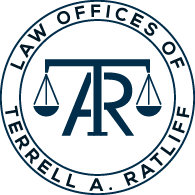Having your professional license suspended or revoked can feel like the end of your career—but it doesn’t have to be. In many cases, you have the right to pursue reinstatement or license restoration through the appropriate legal and administrative channels. Whether you’re a healthcare provider, teacher, attorney, or other licensed professional, there are steps you can take to regain your ability to work and rebuild your reputation.
At the Law Office of Terrell A. Ratliff, we help professionals in New Jersey and Pennsylvania navigate the complex path to license restoration. Here’s what you need to know if you’re seeking to get back to your profession.
1. Understand Why Your License Was Suspended or Revoked
Before you can restore your license, it’s important to fully understand the basis of the disciplinary action. Common reasons include:
- Ethical violations
- Criminal convictions (such as DUI or theft)
- Substance abuse or mental health issues
- Failure to meet continuing education requirements
- Fraud or misrepresentation
Your restoration strategy will depend heavily on the specific findings and actions taken by the licensing board.
2. Know the Reinstatement Rules in Your State and Profession
Each profession and state has its own rules regarding license restoration. In New Jersey, for example, the Division of Consumer Affairs oversees many licensing boards, while in Pennsylvania, it’s typically handled by the Bureau of Professional and Occupational Affairs.
Key questions include:
- Is a waiting period required before you can apply for reinstatement?
- Are you eligible to reapply, or was the revocation permanent?
- Do you need to complete specific requirements (such as treatment programs, probation, or training)?
We help clients identify and comply with every reinstatement condition to improve the chances of success.
3. Gather Documentation and Evidence of Rehabilitation
The board needs to see that you’ve addressed the issues that led to your license suspension or revocation. This may include:
- Evidence of compliance with board orders (e.g., completed probation or monitoring)
- Letters of recommendation from employers, colleagues, or counselors
- Proof of rehabilitation, such as clean drug tests, counseling records, or successful treatment
- Continuing education certificates or retraining records
Your goal is to demonstrate that you are fit to return to your profession and unlikely to repeat the conduct that led to the disciplinary action.
4. Submit a Petition or Application for Reinstatement
Once you’re eligible, you’ll need to file a formal request with the appropriate board or agency. This petition should be carefully crafted and supported by documentation. It often includes:
- A detailed personal statement explaining the circumstances, lessons learned, and changes made
- Legal arguments showing your readiness and fitness to practice
- All required paperwork, fees, and supporting documents
Errors or omissions at this stage can delay or jeopardize your reinstatement. That’s why working with an attorney is critical.
5. Prepare for a Hearing (If Required)
In many cases, the licensing board will hold a reinstatement hearing where you must testify and present your case. You may be asked:
- What you’ve done since the license was suspended or revoked
- How you’ve addressed the underlying issues
- Why you believe you’re now fit to practice
Your attorney can help you prepare your testimony, gather witnesses, and present evidence effectively.
6. What Happens After Reinstatement?
If your license is restored, the board may impose conditions such as:
- Ongoing supervision
- Continued drug or alcohol testing
- Additional continuing education
- Practice restrictions (e.g., probationary license)
Complying with these terms is crucial to maintaining your license long-term. We continue to support clients even after reinstatement to ensure their ongoing success.
Let Us Help You Get Back on Track
Restoring a suspended or revoked license is not easy—but with the right legal guidance, it is possible. At the Law Office of Terrell A. Ratliff, our experienced Professional License Defense Attorneys have a strong track record of helping professionals in New Jersey and Pennsylvania regain their licenses and return to the careers they’ve worked so hard to build.
If your license is suspended or revoked, don’t wait to get legal help. Contact us today to discuss your case and take the first step toward restoring your professional future.
